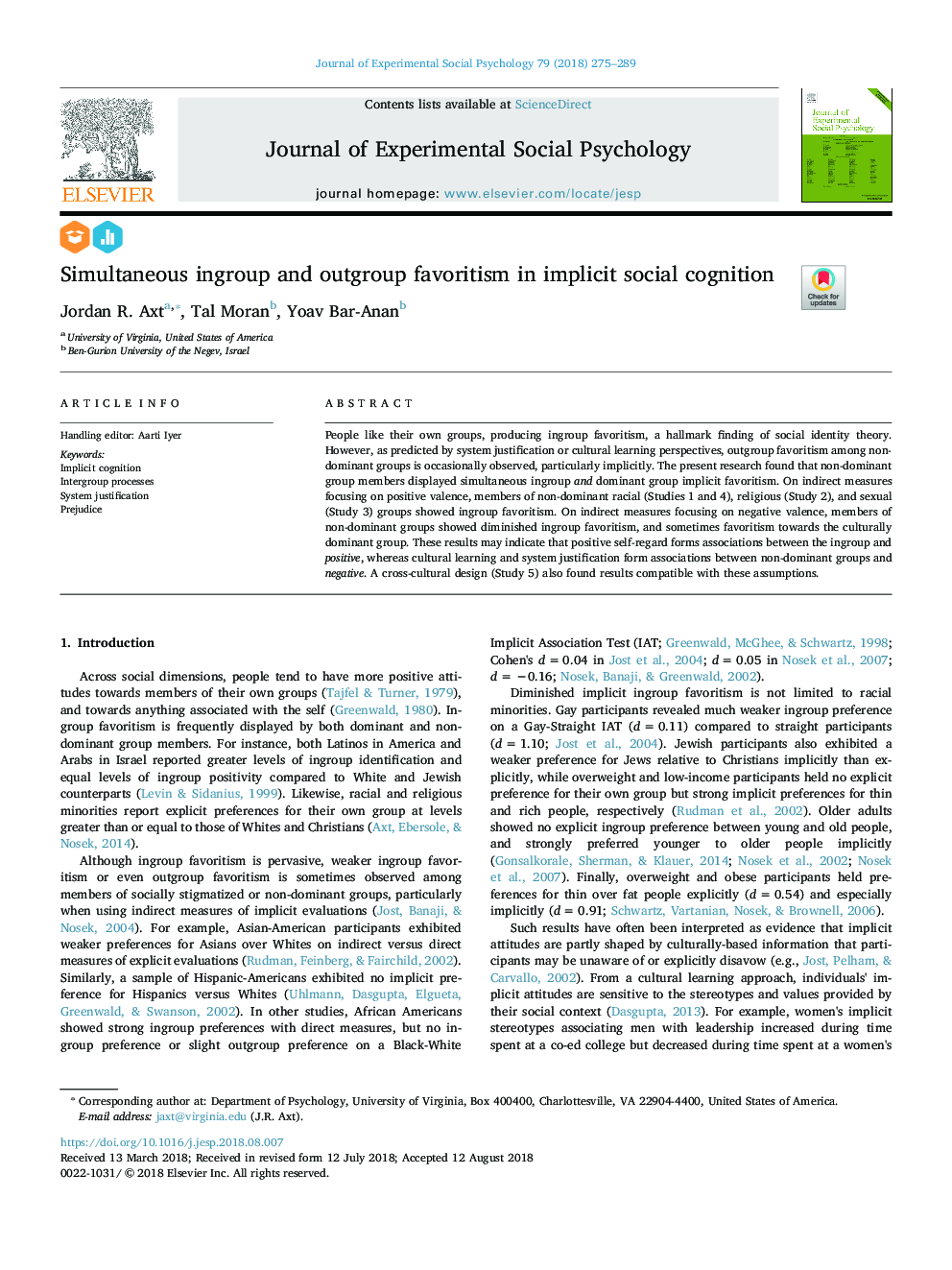| Article ID | Journal | Published Year | Pages | File Type |
|---|---|---|---|---|
| 11004715 | Journal of Experimental Social Psychology | 2018 | 15 Pages |
Abstract
People like their own groups, producing ingroup favoritism, a hallmark finding of social identity theory. However, as predicted by system justification or cultural learning perspectives, outgroup favoritism among non-dominant groups is occasionally observed, particularly implicitly. The present research found that non-dominant group members displayed simultaneous ingroup and dominant group implicit favoritism. On indirect measures focusing on positive valence, members of non-dominant racial (Studies 1 and 4), religious (Study 2), and sexual (Study 3) groups showed ingroup favoritism. On indirect measures focusing on negative valence, members of non-dominant groups showed diminished ingroup favoritism, and sometimes favoritism towards the culturally dominant group. These results may indicate that positive self-regard forms associations between the ingroup and positive, whereas cultural learning and system justification form associations between non-dominant groups and negative. A cross-cultural design (Study 5) also found results compatible with these assumptions.
Related Topics
Life Sciences
Neuroscience
Behavioral Neuroscience
Authors
Jordan R. Axt, Tal Moran, Yoav Bar-Anan,
